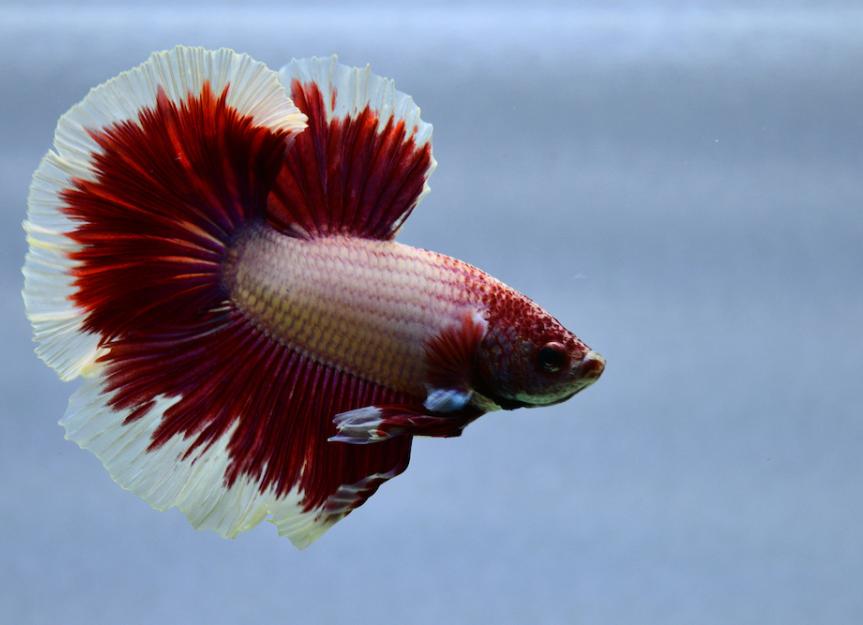Betta Fish Care: Essential Tips for a Healthy And Balanced and Happy Pet Dog
Betta Fish Care: Essential Tips for a Healthy And Balanced and Happy Pet Dog
Blog Article
All Regarding Betta Fish: Understanding Their Unique Requirements, Behavior, and the Ideal Practices for Optimum Treatment
Understanding the one-of-a-kind demands and habits of Betta fish is essential for any type of aquarist wanting to give optimal care. These exciting animals, native to the warm waters of Southeast Asia, exhibit distinctive territorial tendencies and require certain ecological conditions to prosper. From selecting the right tank dimension to acknowledging possible health problems, various factors substantially affect their wellness. As we discover these elements better, the ramifications for both novice and seasoned fish caretakers end up being increasingly evident, questioning about exactly how ideal to fit these remarkable fish in our homes.
Betta Fish Introduction
Although usually appreciated for their vivid colors and streaming fins, Betta fish, clinically called Betta splendens, are intricate creatures that require particular care to flourish. Stemming from Southeast Asia, these freshwater fish are known for their territorial nature and special habits. Betta fish display sex-related dimorphism, with males presenting extra vivid shades and longer fins than ladies.
Their hostile tendencies, specifically amongst males, demand cautious factor to consider when real estate them. Bettas are frequently kept in single-specimen containers to stop territorial disagreements. Nevertheless, they can coexist quietly with particular suitable species in larger area tanks, gave the setting meets their needs.

To make sure optimum treatment, aquarists need to comprehend their distinct behavioral traits, nutritional requirements, and habitat requirements. betta fish. With appropriate interest, Betta fish can exhibit their lively individualities and flourish in a well-maintained fish tank setting
All-natural Environment and Setting
Betta fish thrive in a varied series of all-natural environments, largely found in the superficial waters of Southeast Asia, including rice paddies, swamps, and slow-moving streams. These settings are characterized by cozy temperature levels, generally in between 75 ° F and 82 ° F(24 ° C and 28 ° C ), and a pH degree ranging from 6.5 to 7.5, which is suitable for their health and wellness and wellness.
In their natural environments, Betta fish are accustomed to thick plant life, supplying both sanctuary and breeding premises. The existence of plants such as drifting water lilies and thick grasses not just supplies security from predators but additionally adds to the oxygenation of the water, which is crucial for their breathing requirements. In addition, these environments typically have locations of still water, enabling Betta fish to exhibit their natural habits such as bubble nesting.
Comprehending the natural habitat of Betta fish is essential for aquarium lovers. Duplicating these conditions-- through water temperature level, pH balance, and the inclusion of live plants-- can dramatically enhance the general wellness and durability of these captivating fish, guaranteeing they grow in a home aquarium Visit Your URL setup.
Social Actions and Communications
Recognizing the social habits and interactions of Betta fish is vital for effective aquarium management. Betta fish, or Siamese battling fish, are recognized for their distinct behavior qualities, identified mostly by territoriality and aggressiveness.
Alternatively, women Bettas display much less aggressive behavior and can exist side-by-side in teams, called sororities, if presented appropriately. Nevertheless, it is vital to monitor their communications closely, as hierarchy and prominence can lead to disputes. Understanding the characteristics within a Betta community is crucial; establishing hiding areas and making sure sufficient space can minimize aggressiveness.
On top of that, Betta fish may likewise show curiosity and social habits in the direction of other varieties. While they can exist side-by-side with specific non-aggressive tank mates, it is important to select suitable varieties to prevent stress and anxiety and aggressiveness. Generally, acknowledging these social interactions is crucial to cultivating an unified aquarium atmosphere for Betta fish.
Necessary Treatment Guidelines
Providing proper treatment for Betta fish is critical to their health and wellness. Normal water modifications-- roughly 25% weekly-- help keep water top quality.
Betta fish need a suitable storage tank dimension; a minimum of 5 gallons is advised to provide adequate room for swimming and hiding. Include site link designs and plants to produce a revitalizing environment, yet stay clear of sharp objects that can harm their delicate fins.

Last but not least, make certain the tank is furnished with a filter to keep the water clean, but utilize a gentle filter to avoid solid currents that can emphasize the fish. By complying with these crucial care guidelines, owners can advertise a healthy and vibrant Betta fish.
Common Wellness Issues and Solutions
In the treatment of Betta fish, understanding of common health issues is vital for maintaining their wellness. One prevalent concern is fin rot, frequently triggered by poor water high quality or bacterial infection. Signs and symptoms include torn or tarnished fins. To deal with fin rot, improve water problems and think about making use of a broad-spectrum antibiotic.
An additional usual ailment is ich, a like it parasitical infection characterized by white spots on the fish's body (betta fish). Therapy entails boosting water temperature level and including fish tank salt to the container, as this can assist remove the parasite
Swim bladder problem is likewise regularly observed, causing buoyancy problems. This condition may emerge from overfeeding or bowel irregularity. A fasting period of 24-48 hours, adhered to by a diet regimen of blanched peas, can supply relief.
Lastly, bettas may experience velour illness, shown by a gold dust-like look on their skin. Therapy generally requires medicine specifically made for external parasites, along with boosted storage tank hygiene.
Regular tracking of water specifications, maintaining a tidy environment, and offering a balanced diet plan are important preventive measures. By attending to these health and wellness problems quickly, Betta fish can lead healthier, much more dynamic lives.
Verdict
In recap, successful betta fish care requires an understanding of their one-of-a-kind needs and actions. Giving a suitable setting, consisting of appropriate tank dimension and water conditions, is crucial for their health. In addition, acknowledging their territorial nature and guaranteeing ample hiding areas can prevent aggressiveness. Normal surveillance of health and wellness and water high quality, in addition to a well balanced diet regimen, adds to the long life and vibrancy of betta fish. Sticking to these guidelines will promote a thriving aquatic environment for these fascinating creatures.
Report this page